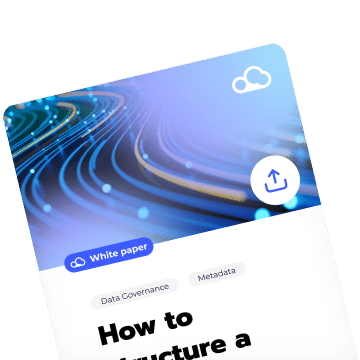Whether you’re looking to enhance your data catalog, strengthen your metadata management tool, or streamline data workflows, the right tool can make all the difference. Data management platforms collect, organize, and activate first-, second-, and third-party audience data from various online, offline, and mobile sources to build detailed profiles that drive targeted initiatives.
This article will dive into eight of the best data management tools available for businesses looking to increase organizational data literacy and drive smarter, more data-driven decision-making.
Oracle
Oracle has long held its ground as a dominant force in the realm of database management, and its comprehensive platform is meticulously tailored to cater to a vast array of organizational needs by seamlessly merging traditional data handling methods with modern requirements. Beyond just serving as a repository for data, Oracle’s platform is equipped with cutting-edge analytics capabilities that enable businesses to dive deep into their data pools, unearthing patterns, trends, and actionable insights that can inform strategies and decisions.
Furthermore, a crucial strength of the Oracle data management platform lies in its robust integration features. This allows businesses to bridge data silos, connecting disparate data sources and systems with ease. By fostering a cohesive data environment, Oracle ensures that data operations aren’t just streamlined but also optimized for performance. This versatility, paired with Oracle’s renowned reliability, makes it a top contender for businesses keen on fortifying their data infrastructures.
IBM
Crafted with precision, IBM is much more than a mere data management solution. With the burgeoning importance of metadata in modern data operations, IBM’s database management tools ensure that organizations can maintain accurate, detailed records of data lineage, attributes, and interrelationships.
But the brilliance of IBM doesn’t end there: It’s designed to handle complex data landscapes, making sense of the vast and varied data streams that flow into organizations daily. This ensures a harmonized data ecosystem where information, regardless of its source or format, is accessible, relevant, and primed for analysis. For organizations aiming to uphold data integrity while ensuring agility, IBM presents itself as an invaluable asset.
Talend
As a cloud-native integration platform, Talend offers a fresh, forward-thinking approach to handling today’s multifaceted data challenges. At its core, Talend is structured to offer real-time data accessibility to ensure organizations are not just reacting to historical data but can harness live data streams, making decision-making more proactive and agile.
Using Talend, users can swiftly locate, access, and utilize the data they need without wading through oceans of unrelated information. This organization, coupled with Talend’s robust data quality mechanisms, ensures that data is not just accessible but also accurate and reliable.
Informatica
Informatica, acclaimed for its holistic, encompassing approach to data operations, greets users with an intuitive interface that simplifies what traditionally would be complex data workflows. This user-centric design philosophy ensures that data professionals, whether seasoned or newcomers, can derive maximum value with minimal learning curves.
Beyond its user-friendly veneer, Informatica packs a potent punch in the realm of analytics: The platform comes equipped with a suite of advanced tools that transform raw data into actionable, meaningful insights that inform business strategies, optimize operations, and drive innovation.
Microsoft SQL Server
Microsoft SQL Server, a relational database management system, is lauded for its performance, security, and versatility. Suitable for both small businesses and large enterprises, this platform offers a blend of advanced analytics and data warehousing solutions. Its in-built machine learning capabilities are a boon for organizations looking to delve deeper into predictive analytics.
SAP
SAP, a brand with a rich legacy in business software solutions, offers comprehensive data services for data integration, quality, and governance. One of its key strengths is its ability to unify data from disparate sources, ensuring cohesiveness across datasets. Its rich set of features also encompasses data catalog capabilities, providing users with a transparent view of data assets and their interrelations.
Google Cloud
Google’s cloud-based data services are designed for creating data-driven, integrated solutions. Built on open-source projects like CDAP, these tools provide both batch and real-time data processing capabilities, and their visual interface simplifies the process of designing and operationalizing data pipelines, making it a favorite among data professionals.
Database management tools with a data catalog
In the vast and intricate world of database management tools, a data catalog emerges as a key instrument, orchestrating harmony amidst potential chaos. Data catalogs are more than just a mere directory or a reference tool; they provide order in an environment brimming with diverse datasets scattered across different cloud platforms. A data catalog serves as the nexus that bridges the myriad of data islands, ensuring a coherent, unified view of an enterprise’s dispersed data assets.
But how does this happen? The data catalog works diligently, indexing every piece of data, annotating it with rich metadata, and providing a streamlined interface for users to understand and access the data they require. This understanding is crucial in a multi-cloud setup where knowing the ‘what’, ‘where’, and ‘how’ of data becomes the foundation of efficient operations.
Beyond its primary role, the data catalog is also the gatekeeper of data quality. By keeping track of data lineage and usage patterns, it ensures that reference data remains pristine and up-to-date. It becomes the touchpoint for data stewards, analysts, and business users, enabling them to collaborate, share insights, and drive data-driven initiatives with clarity and confidence.
Conclusion
The choice of data management tools hinges on an organization’s specific needs, the volume of data handled, and the desired outcomes. Whether it’s enhancing your data catalog, optimizing your metadata management tool, or achieving seamless data integration, the right tool can pave the way for data excellence.
Did you know that all of these great data management sources are natively connected to DataGalaxy’s Data Knowledge Catalog? DataGalaxy’s Data Knowledge Catalog provides a large library of ready-to-go connectors to effortlessly identify and map your organizational data, processings, and usages. Simply connect and relax – DataGalaxy will plot your entire data landscape, saving you time and accelerating data knowledge sharing across all teams.
Learn even more about creating an intuitive data catalog to manage your metadata – Sign up for a demo of DataGalaxy’s Data Knowledge Catalog, an all-in-one metadata management catalog that offers out-of-the-box actionability with fully-customizable attributes, powerful visualization tools, standardized business glossaries, and AI integration to help organizations easily document, link, and track all organizational metadata assets on one dynamic platform.





